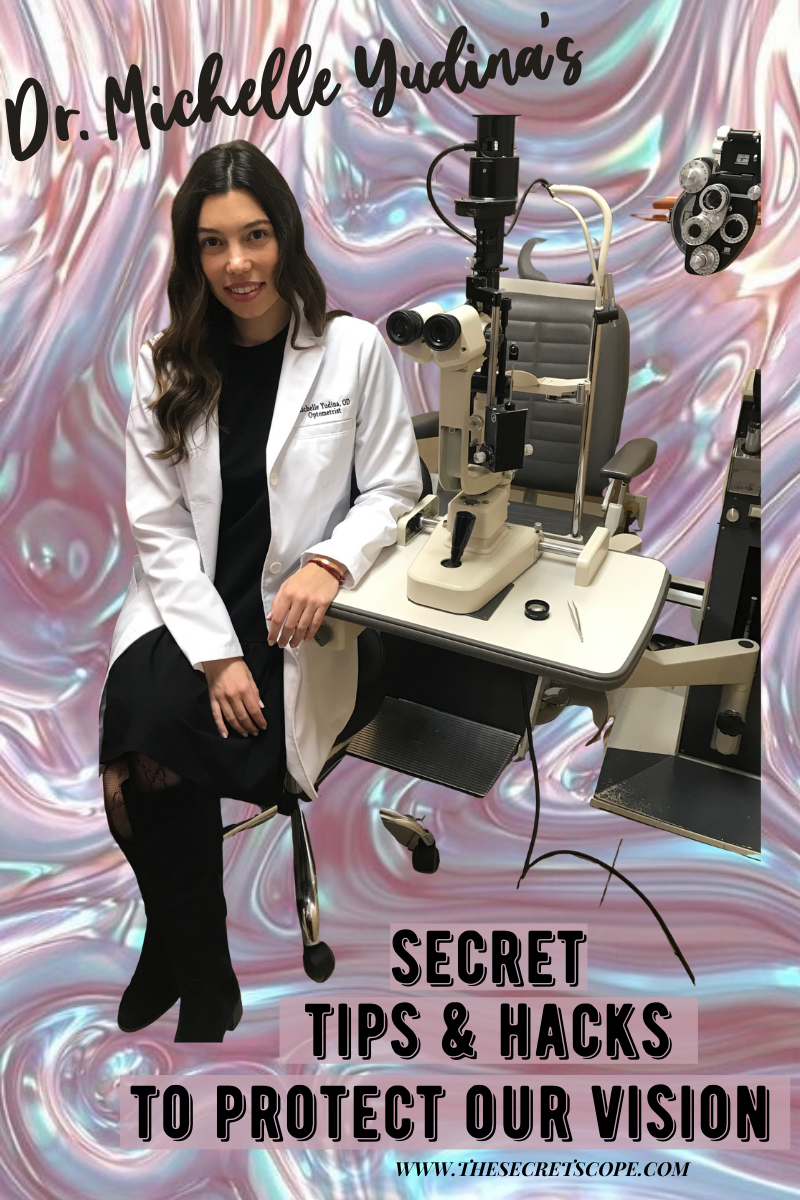Secret Tips & Hacks to Protect our Eyes during Quarantine
- thesecretscope
- Apr 15, 2020
- 2 min read

Hi SecretScope family! My name is Dr. Michelle Yudina and I am an Optometrist practicing in New York City. Currently I am unemployed like most of us because of COVID-19. Since we are now at home more and constantly on our phones, computers and tablets I thought it would be a good time to talk about blue light. In this post I am going to answer the most common questions I get in practice regarding blue light. I hope you find this helpful and informative. I hope everyone is staying safe and practicing social distancing. We can get through this together xx.
Will I go blind from staring at my phone all day?
I get this question almost daily. The answer is no. Blue light from digital devices will not cause
blindness. There is no scientific evidence that blue light from devices causes damage to our
eyes. What we do know is that blue light can interfere with our circadian rhythms, our sleep
and wake cycle. Too much blue light exposure at night can make it harder to fall asleep. If you
have trouble falling asleep, try putting your phone away one to two hours before bed and try
changing the setting on your phone to night mode.
Should I buy blue light protective glasses?
We have seen blue light protective glasses all over the media, especially influencers promoting their blue light glasses. But the question is do they really work? The answer is we do not know. There has not been enough research to say that the blue light glasses are effective. As of now, I would hold off on purchasing any blue light protective glasses.
Why are my eyes so tired and dry?
This is the most common complaint I hear from patients of all ages. The eye strain and dryness that most patients experience comes from staring at devices all day and NOT blinking. The normal blink rate is 15 times per minute, when we are staring at a device the blink rate is cut in half. The best way to protect your eyes against digital eye strain and dryness is to implement the 20-20-20 rule. Every 20 minutes shift your eyes to look at an object 20 feet away for at least 20 seconds. In addition when the eyes feel dry, use artificial tears (Refresh or Systane) to lubricate the eyes.
Should I limit screen time for my kids?
Currently we do not have guidelines in place regarding screen time in school-aged children. The good news is that there is no evidence that screen time harms children’s eyes or their developing visual systems. However, more screen time correlates with other health issues, such as, ADHD, obesity and myopia (near-sightedness). The American Academy of Pediatrics recommends no screen time for kids until they are 2 years old and no more than one hour of screen time for children ages 2-5.
We hope you guys enjoyed this blog post from our dear friend and board-certified Optometrist Dr. Michelle Yudina. If you have any other questions for her, make sure to leave it in the comments below!
x, The SecretScope
+ Listen to Dr. Michelle Yudina's Episode on The SecretScope Podcast here

Comments